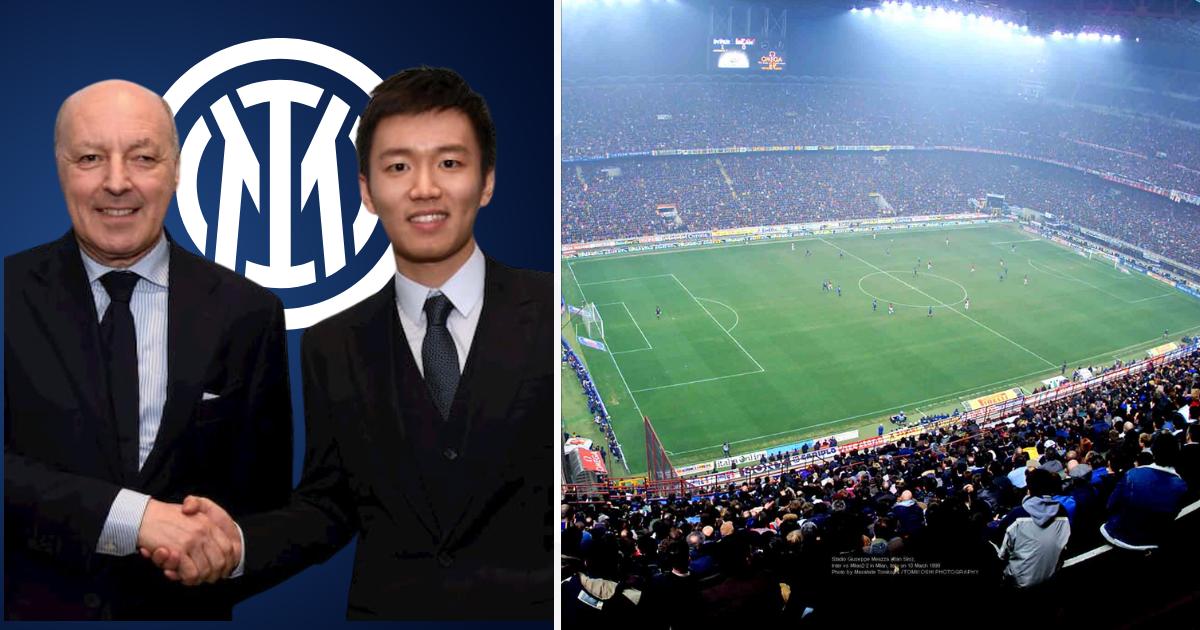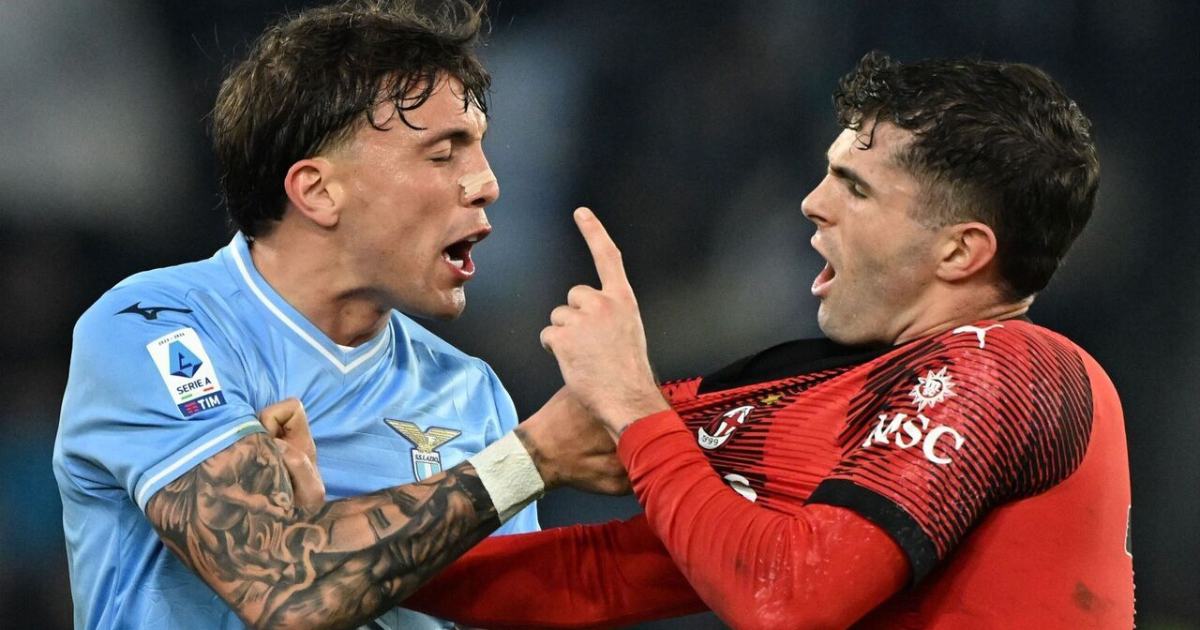Between acquisitions and departures, in this transfer window, the Nerazzurri have conducted ‘role-for-role’ operations: here’s the comparison between who was there and who has arrived.
A NEW INTER: The Nerazzurri’s summer has been marked by a one-in, one-out policy, a role for role exchange.
The Frenchman, arriving from Bayern Munich, is set to replace the Slovak (Skriniar). It will be another change compared to the previous season: from Onana-Sommer to Lukaku-Thuram, here are all the differences between Inter in 2023/24 and the one from last season.
Sommer-Onana

Experience is the trait that differentiates between André Onana and Yann Sommer, the past and present of Inter’s goalkeeping.
The new Manchester United player is 27 years old, while the current Nerazzurri number 1 is seven years older (he will turn 35 on December 17th). The former has played 34 matches for the Cameroon national team, while the latter has impressive 83 caps for Switzerland. Both boast a rich international resume:
Onana arrived at Inter with a Europa League final loss and a Champions League semifinal under his belt, while Sommer comes from winning the Bundesliga title with Bayern and has previously secured the Swiss league championship four times with Basel.
Onana was sold for approximately 52 million euros plus five million in bonuses, while Sommer was acquired for six million euros payable over two years. The Cameroonian earned a net salary of 3 million in Nerazzurri colors, while the Swiss goalkeeper will receive 4.
Audero-Handanovic

Inter bid farewell to a captain who made 455 appearances in Nerazzurri colors, the tenth player with the most appearances in the club’s history, on pair with Cordoba.
Samir Handanovic arrived in Milan in 2012 from Udinese, tasked with replacing Julio Cesar. He was 28 years old, two years older than Emil Audero when he joined Inter.
The 26-year-old, born in Mataram, Indonesia, was acquired from Sampdoria on a loan with an option to buy, set at 6.5 million euros.
Handanovic left for free after the expiration of his contract, while Audero came in at no cost.
And the salary? The Slovenian earned 2.5 million, while Emil will receive 800,000 euros.
Di Gennaro-Cordaz

Alex Cordaz had the chance to bask in his moment of glory last year in Torino vs. Inter, the final game before the Champions League final, with a brilliant save against Sanabria.
It was recognition for the behind-the-scenes work of the goalkeeper born in Vittorio Veneto, who left Inter at the age of 40.
In his place, as the third-choice goalkeeper, we have Raffaele Di Gennaro, a 29-year-old from Saronno and a product of Inter’s youth academy. In the last season, he played in Serie C with Gubbio and has signed a one-year contract.
Bisseck-D’Ambrosio

From a comfort zone to a gamble. The Interismo and the 34 years (soon to be 35) of Danilo D’Ambrosio have been replaced by the freshness of Yann Bisseck, a 2000-born defender from Cologne, acquired from Aarhus by paying the release clause of 7 million euros (payable over three years).
A promising German talent, whose rise has been hampered by numerous injuries. He has committed to Inter until 2028.
The youngster played a pivotal role with Germany in the Under-21 European Championship, wearing the captain’s armband, and can be utilized in many positions, since he has also played on the left in the past.
In Milan, he will earn 800,000 euros per season, while D’Ambrosio’s salary (honored at San Siro during the Inter-Monza match) was 2 million net.
Pavard-Skriniar

The true replacement for Skriniar is on the way. Inter is placing a strong bet on Benjamin Pavard to fill the void left by the departure of the Slovakian to Paris Saint Germain on a free transfer this summer.
The Frenchman defender is a year younger than the former Sampdoria player, and it is seen as a perfect fit for the left back position in the Inter defence.
His trophy cabinet is impressive: with Bayern Munich, he has won everything (highlighted by four Bundesliga titles and the 2020 Champions League), and with France, he triumphed at the 2018 World Cup, playing as the starting right-back.
Skriniar earned 3 million euros net salary, while Pavard at Bayern receives 5 million per season.
Cuadrado-Bellanova

There has been a change on the right flank for the role of Dumfries’ alternative. The former Cagliari player was not bough, and to everyone’s surprise, the Nerazzurri have focused on an ‘old enemy’ of the past.
A cost-free change, considering that the Cuadrado was available after his contract with the ‘Vecchia Signora’ expired. If Bellanova represented the future (being a class 2000), Cuadrado embodies experience and represents a synonym for reliability on the wing.
As for the salary, the costs have increased: from the 900,000 euros of the young italian to Cuadrado’s 2.5 million.
Frattesi-Brozovic

This is a switch from a deep-lying playmaker to a central midfielder, yet we can still talk compare the two, as the new position in front of the defense now belong to Hakan Calhanoglu.
With the Turkish midfielder as the new centerpiece of the midfield, it was necessary to find a fresh central midfielder, and Inter dove into the transfer market for Davide Frattesi, beating the fierce competition from other top Serie A clubs.
The former Sassuolo midfielder is seven years younger than the croatian and comes at considerably lower costs: from Brozovic’s salary of 6.5 million eurosto Frattesi’s 2.8 million euros (until 2028).
The Croatian was sold for a fee of around 18 million euros, while the Italian National Team midfielder will cost 33 million euros, which includes a 6 million euros loan, obligation to buy set at 27 million euros, plus 5 in bonuses.
Sensi-Gagliardini

An old acquaintance. Stefano Sensi, somewhat surprisingly, will have another chance at Inter.
Numerically, he takes the place of Gagliardini, although the two are midfielders with opposite characteristics: creativity and attack on one side, physicality and defence on the other.
Another cost-free “exchange,” with just one year of difference between them: Sensi (28 the younger).
Gagliardini earned 1.5 million euros per season, while the former Sassuolo player – whose contract expires in June – has a salary of 2 million euros net.
If it wasn’t for the failed transfer of Lazar Samardzic from Udinese to Inter, we would have been talking of him as Gagliardini’s replacement, but for now Inter has decided to keep Stefano Sensi.
Carlos Augusto-Gosens

The call from Germany was the right move for Robin Gosens, who was never really a protagonist at Inter.
In recent days, the long-discussed swap has materialized: Robin is out, while Carlos Augusto in. So, Inter rejuvenates the left side, with the Brazilian (born in ’99) being five years younger than the German.
Gosens has more experience on his side, considering the matches he played in the Champions League, including those with Atalanta, and the fact that he has worn the German national team jersey 16 times, scoring two goals. Meanwhile, Carlos Augusto, with Brazil, has played only six matches with the Under-20 team.
The figures: Gosens was sold for 15 million euros, while for the former Monza full-back, Inter paid 4.5 million euros for the loan plus 7.5 million (plus bonuses) for the buy option around 12 million overall. Gosens earned a salary of 2.5 million, whereas Carlos Augusto will receive 2.2 million a year.
Arnautovic-Dzeko

The new heavyweight striker, following the departure of Edin Dzeko after the expiration of his contract, is the Austrian Marko Arnautovic.
Both share similar characteristics: physicality, the ability to score, creativity, and knowledge of Italian football.
The 34-year-old former Bologna player is three years younger than the Bosnian and returned to Milan for eight million euros, plus two million in bonuses.
Both are key figures for their respective national teams: Dzeko has played 129 matches for Bosnia and Herzegovina (64 goals), Arnautovic 108 (34 goals) for Austria.
Then, of course, their trophy cabinets are quite different: Marko has only won with Inter during the year of the Treble although he was rarely almost never used, while Dzeko has collected titles in Italy, Germany, and England.
The “switch” allows Inter to save some money on the salary: from Dzeko’s 5 million euros net to Arnautovic’s 3.5 million.
Thuram-Lukaku

In Inter’s original plan, they were supposed to play together. However, the Lukaku situation changed the plans: Marcus Thuram now finds himself as Lautaro’s new partner, “ThuLa” instead of the glorious “LuLa”.
The new Nerazzurri number 9 is Lilian Thuram’s son, arriving on a free transfer from Borussia Mönchengladbach, while ‘Big Rom’ left after the expiration of his loan from last season, so the balance is zero.
In terms of salary, there’s a difference: Lukaku was the highest-paid Inter player last year with 8.5 million euros net (approximately 11 million gross due to the growth decree), while Thuram will earn 6 million euros.




